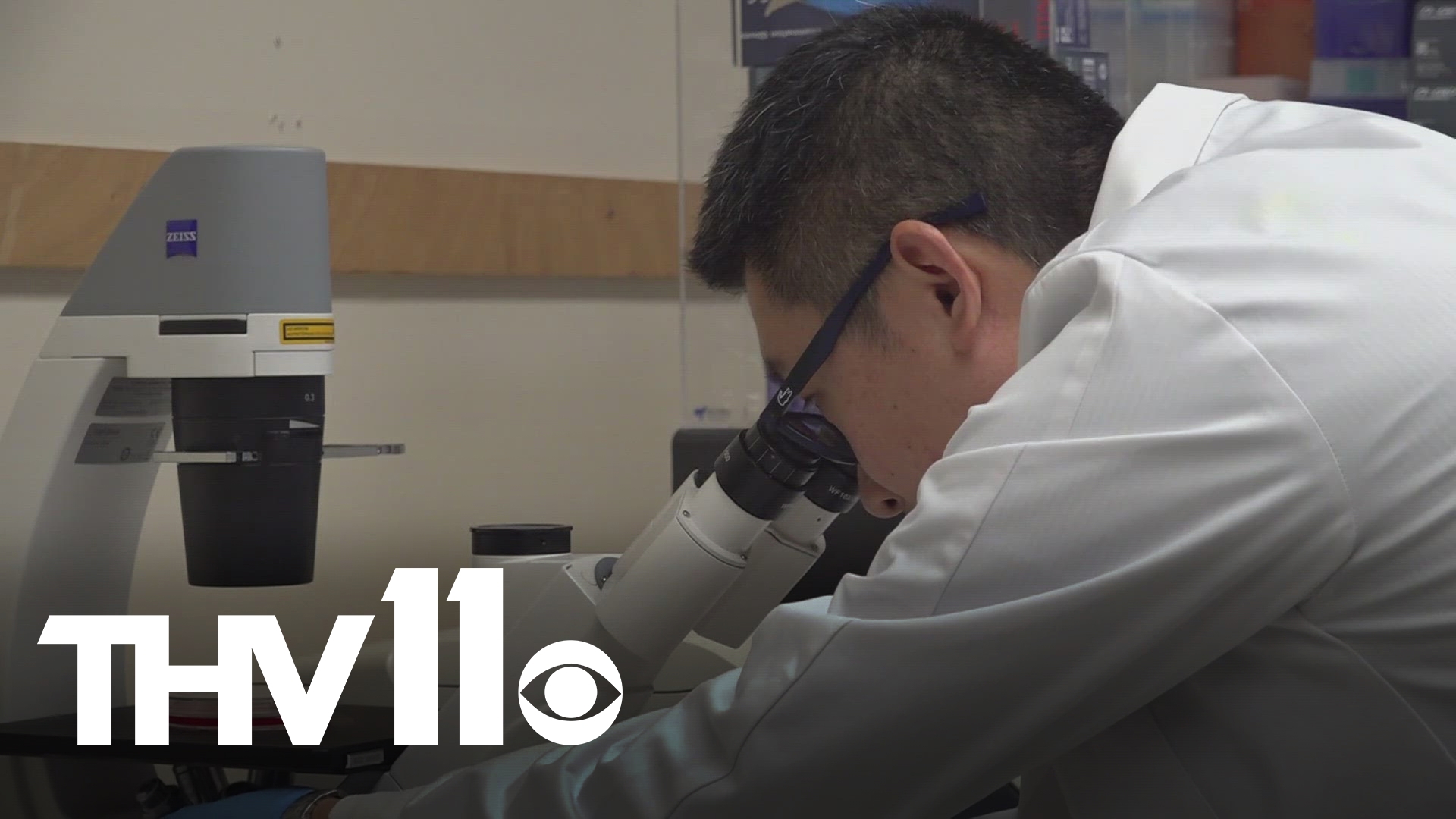LITTLE ROCK, Ark. — The National Institutes of Health (NIH) has awarded UAMS researchers $3.7 million to pursue a possible breakthrough in tuberculosis (TB) research.
While we may not see much TB in the U.S., Arkansas did see a cluster of cases last year, and the problem is much bigger worldwide.
"It's a number one infectious disease that claims lives globally,” UAMS Assistant Professor Dr. Lu Huang said.
The World Health Organization said that 1.3 million people died from TB in 2022, and it is the world's number one infectious killer.
Moreover, the vaccine often used to treat it has been used since 1921, and doctors said its effectiveness can vary.
That’s where Huang and his team come in.
“This research will have broad impact globally,” Huang said. “If we can find a vaccine that actually works in adults.”
Huang is trying to do just that by zeroing in on one specific immune cell, which is often the first one encountered by TB-causing bacteria.
"We particularly focus on one type of cells that lives in our lungs,” Huang said. “Called alveolar macrophages, and how this cell actually responds to TB infection."
The answer is not very well, according to Huang.
He said these cells can actually create an environment for TB-causing bacteria to multiply, which his vaccine would hopefully fix.
The NIH found his research promising enough to grant him $3.7 million over five years to study which cells fight TB the best based on where they originate.
“That grant specifically will help us investigate how and what pathways,” Huang said. ”How does each pathway in the alveolar macrophages actually regulate their functions during infection?”
Huang joined UAMS from Cornell University in 2020 and was provided a startup research funding package that allowed him to develop the preliminary research needed to secure this grant.
Huang’s research includes a collaboration with fellow UAMS researcher Dr. Josh Kennedy, who is based at the Arkansas Children’s Research Institute.

